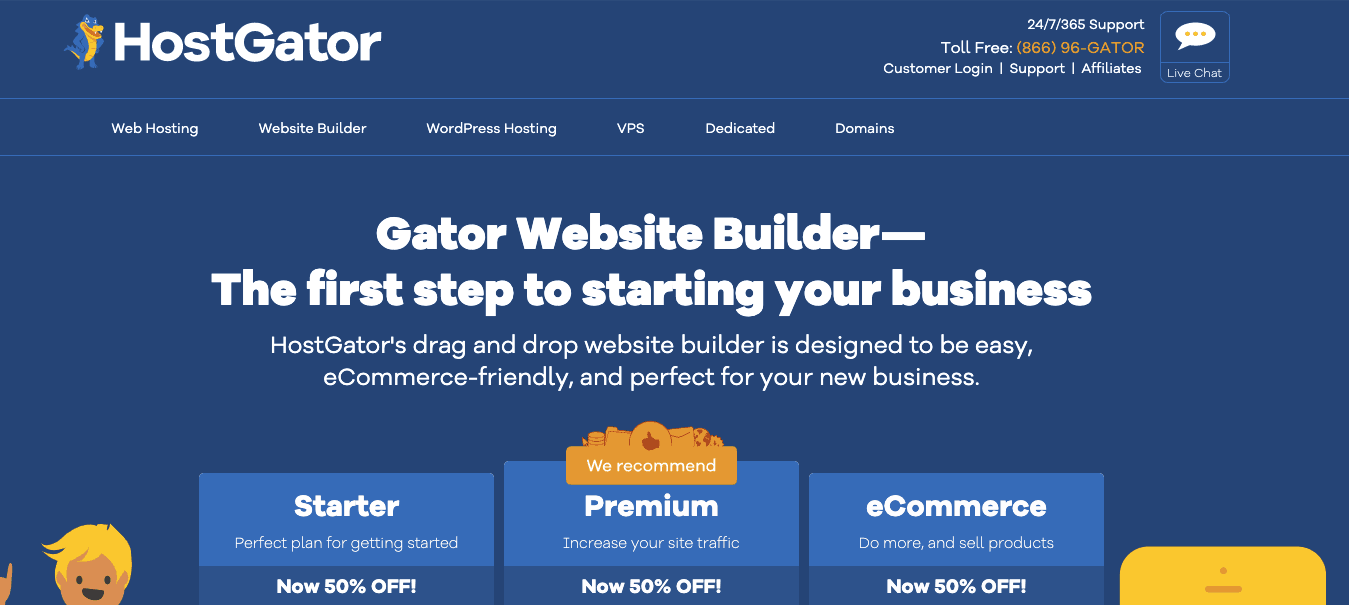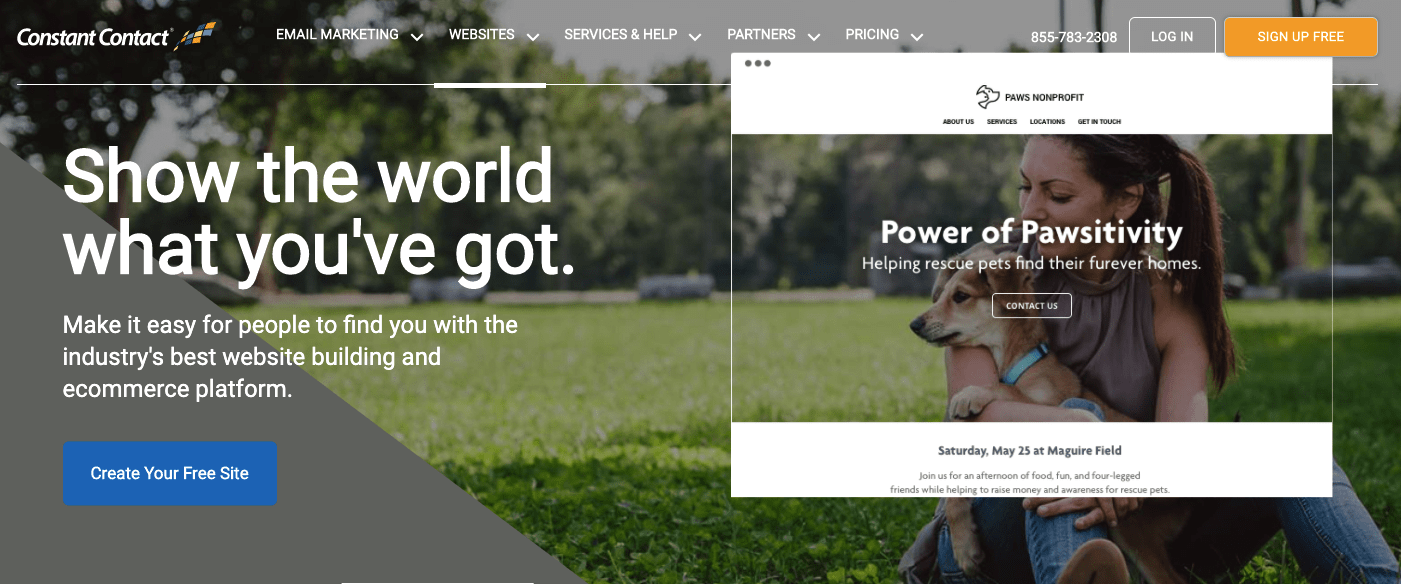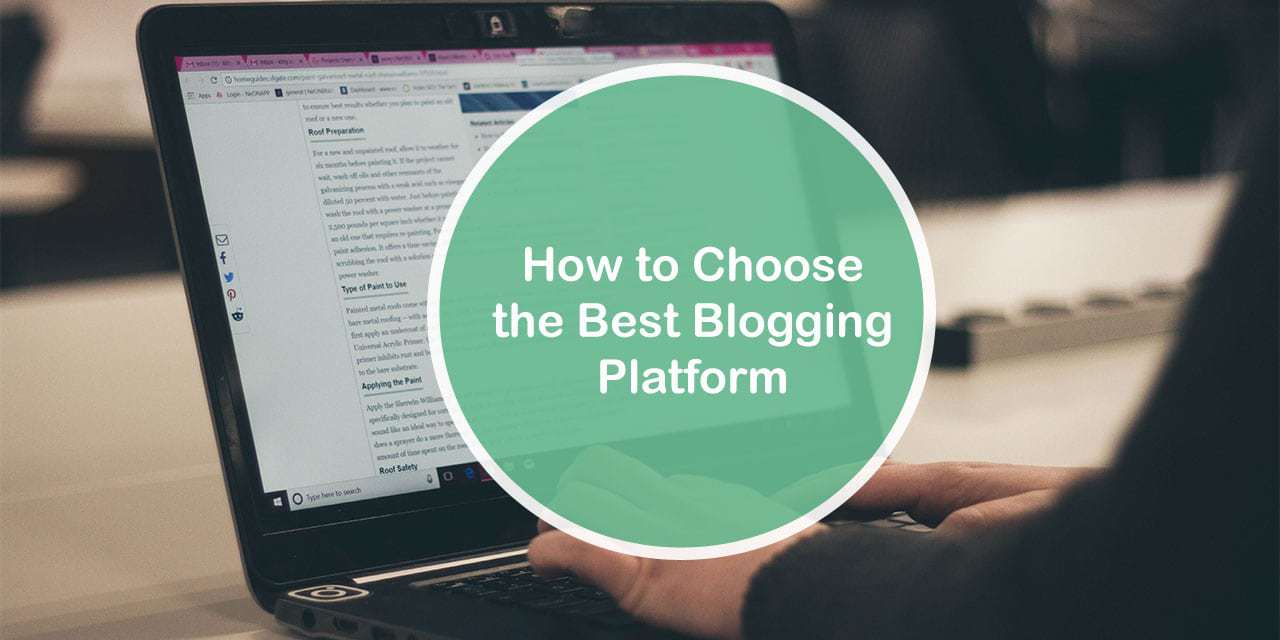When starting a blog, it’s vital to know which blogging platform to use because they all serve a particular purpose. You won’t find what you’re looking for in every single one of them because of every single detail matters.
Here, we’ll help guide you to your desired blogging platform and make you see which one fits best with your current needs.
All blogging platforms are great in their own way, so you need to familiarize yourself with all of them in order to know what it is that will make your blog truly thrive.
Here, we’ll go over some of the most popular blogging sites out there and explore the pros and cons of each one to help you make the best decision for yourself.
What to Look for in a Blogging Platform?
Before delving deeper into the specifics of each one, first, there are a few things you must know before you keep reading.
If you are a beginner in the blogging waters, you want a blogging platform that doesn’t require mad skills to set up and one that doesn’t call for any coding knowledge.
Ask yourself what you envision for your blog. Where do you want to start, and how do you see it progress? It’s likely that with the time, you’ll want to add some changes to your blog to mix things up, and that requires a blogging platform that will leave room for growth.
If you choose the wrong platform now, it’ll hurt your blog in the long haul. This is why you need to carefully consider your current needs as well as your future ones.
On that note, let’s see what’s out there, starting with the best blogging choice that will meet all of your needs, both current and prospective.
The Best Blogging Platforms for Your Needs
Let’s dissect some of the best blogging sites and explore their pros, as well as cons. Some of them are great in their own right, but simply don’t fit in with your vision for the future. Here’s all you need to know for a smart, educated decision.
1. WordPress
WordPress is, without a doubt, one of the most popular and the most dependable blogging sites out there. It offers a really simple set-up in no more than a few minutes, and you’ll find it refreshingly easy to build your website on WordPress.

WordPress is your absolute best option if you’re thinking long-term and want a platform that will leave room for future tweaks and turns. WordPress offers so much in terms of the intricacies of your blog and is definitely a worthwhile option.
PROS
- You’re fully in charge of everything with regards to your blog.
- With WordPress, your blog can easily be a standout with a huge selection of amazing wallpapers that you’ll find here.
- WordPress is the best platform where you can earn money, as it allows you to add a variety of features, such as an online store, forums, or a paid membership.
- It is search engine friendly. You’ll find it beyond simple to create URLs, categories, and tags that are great for SEO, especially due to an added plugin where you can get even more awesome features.
CONS
- It’ll take some time to get used to the ins and outs of being fully in charge of your own website.
- This also means that you’ll have to be in charge of the back-up and security of your blog as well.
2. Gator by HostGator
Gator is known as a website builder, and it aims to help you create an awesome blog or whichever type of website you’re in need of, from a business page to an online store.

Aside from WordPress, Gator is another great choice that encompasses everything one needs for building a successful blog that will be easy to keep improving in the future as well.
PROS
- Set up your website along with your design easily with the amazingly handy drag-and-drop feature.
- Simple to set up, with no need to be tech-savvy.
- HostGator takes care of the security, performance, and backups, which leaves less hassle for you.
- In case of needing to create an online store at some point, you’ll find it really easy in no more than a few short clicks.
- SSL certificates, as well as Free Domain, are also included in the plans.
CONS
- It’s not free of charge, but you do get a chance for a 45-day money-back guarantee.
- You’re restricted when it comes to eCommerce, which is valid only for higher plans.
- It doesn’t offer up a big selection of extensions and apps.
3. Constant Contact
Constant Contact is another example of a full-on web builder that offers you great options for a successful blog. With Constant Contact, you also get to create an online store, a business shite, and a free blog.

This blogging platform comes with a large selection of templates that will help you set up your blog with a useful drag-and-drop feature. On top of that, you gain access to a multitude of really handy tools; professional stock photo library, a custom logo maker, and plenty more!
PROS
- Again, easy to use for beginners due to a simple and effective drag-and-drop builder.
- Constant Contact hosts your website, which guarantees a really simple set-up.
- A free-plan option that is plentiful in its offer – you get to sample the blog and explore it before you commit to buying.
- The paid plans all come with a free domain and SSL certificate.
CONS
- Not a lot of software developers, which leaves you with a small number of third party plugins like WordPress.
- Limited incorporation with third party programs.
- A complex and strenuous transition of your blog from Constant Contact to another platform of your choosing.
4. Blogger
Blogger is Google’s free blogging platform that is very easy to use for beginners as the set-up process doesn’t take a lot of time or knowledge.

Blogger is one of the oldest (and since improved) blogging sites, and all it requires is a Google account, and you’re good to go. It doesn’t offer a wide variety of options, but it’s easy to use for simple blogging purposes.
PROS
- Blogger is free of charge.
- Beyond simple to manage as it doesn’t require you to be a tech-wiz.
- The fact that it’s a Google-based blogging platform adds to its security and dependability.
CONS
- Limited features – leaves no room to expand your blog or add anything new to it as it rises in popularity.
- Not a wide variety of templates, which leaves a poor choice for your blog’s design.
- It does not receive regular updates or features.
- Google has the power to completely shut down your entire blog at any time (there’s a history of this happening before).
5. Wix
Wix is a blogging platform created in 2006, where people with no technical knowledge were able to create their own amazing blogs.

It offers handy drag-and-drop tools that enable you to create your blog and build your website. Over 110 million people use it worldwide.
PROS
- Zero coding skills needed; simply use the drag-and-drop feature and create your blog.
- A huge choice of templates for the design of your blog as well as third-party apps.
- A really easy setup that anyone can master quickly.
CONS
- Wix ads appear on your site, and the free nature of the account is limited.
- Inability to change your template. Once you make your choice, that’s how it stays for good.
- Blog features are very poor compared to all the other blogs here mentioned.
- Very limited Ecommerce features, even with the paid plan.
6. Medium
Medium is a colorful blogging platform with a mix of different worlds, from bloggers, writers, journalists to experts. It’s not difficult to use, but it doesn’t offer a lot of features for your blog.

Medium is very similar to a social media platform in that you can just open an account and start putting out your desired articles. First, you need to sign up, and that will leave you with a profile address that looks like this: https://medium.com/@yourname. Also, you won’t be able to use your own domain.
PROS
- The simplicity of use and no coding skills needed to manage this blogging platform.
- Ability to join an online community of people with shared interests where your blog can thrive among like-minded people.
- You can make writing your focal point, as opposed to spending time building an all-encompassing website.
CONS
- A very limited feature offer which makes it difficult to create a brand and branch out.
- Your entire audience is owned by Medium. Should you ever lose your blog, your audience would disappear along with it.
- You get a curated domain name, and you can’t change it into your own.
Conclusion
Choosing the right blogging platform is an essential step in making the best out of your blog. For intricate purposes and having extra options and features, WordPress is the right choice for you. But for all those seeking a simple blogging platform for one specific purpose, Blogger and Wix are ideal for you. Choose a platform that meets your needs according to what you’ve learned today and create a blog that you will be happy within the long haul.

